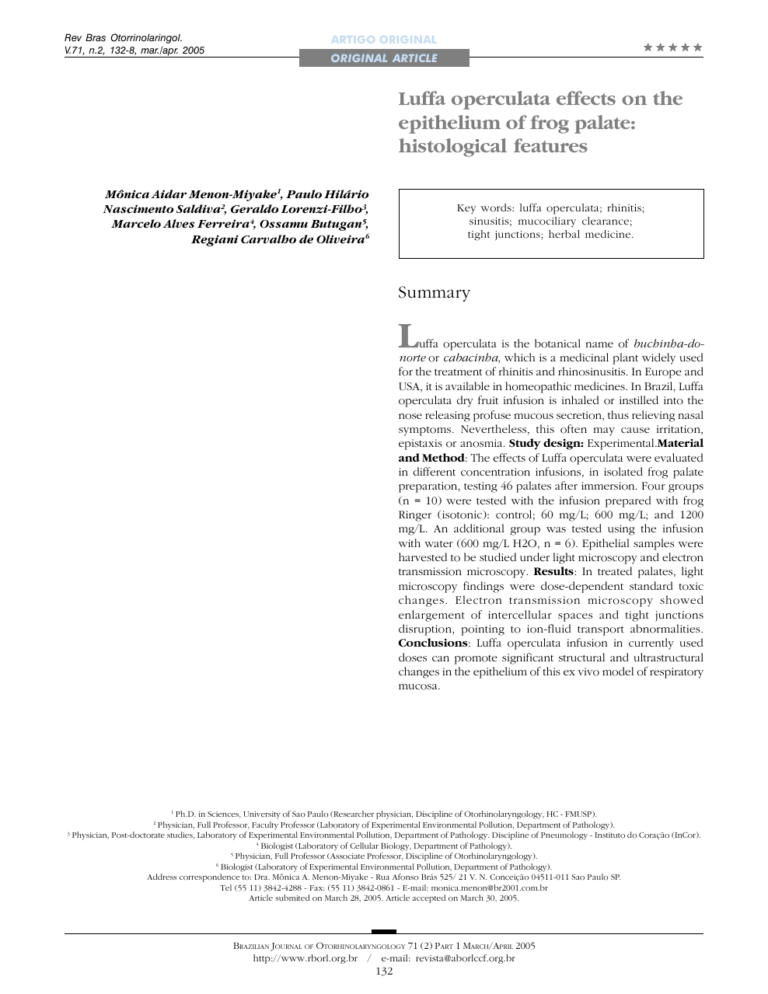Self-care has become more than a hashtag, as people around the world continue to prioritize taking better care of themselves to live longer. In addition to changing the way they approach their health; many people are also embracing the way they look naturally.
While many products on the market contain “anti-aging” ingredients, advocates for pro-aging express the need to change the way we think about aging altogether. The term “anti-aging” has recently been placed under the microscope by beauty enthusiasts who feel that it suggests that aging is something we want to avoid when, in fact, aging is a natural process we should embrace.
Dr. Dusan Sajic, who specializes in dermatology and anti-aging, revealed that it’s important to understand the difference between the words “pro-aging” and “anti-aging.”
Anti-aging vs. pro-aging
Anti-aging is frequently misunderstood as an aggressive approach to reversing the effects of aging, which can result in overtreatment and incredibly unnatural results.
“The term often involves the use of skincare products, procedures like botox or fillers, and even plastic surgery,” Sajic explained, noting that there are various methods and products that aim to slow down or reverse the signs of aging, such as wrinkles, fine lines, and age spots.
On the contrary, pro-aging is a more recent concept that encourages everyone to embrace aging as a natural process rather than trying to stop it.
“Pro-aging focuses on promoting healthy aging by encouraging a balanced diet, regular exercise, stress management, and other healthy lifestyle choices,” Sajic explained. “With regards to procedures in the clinic, this means that patients don’t want to look younger but rather the best versions of themselves.”
Sajic added that this can still mean using lasers, fillers, botox, and other treatment modalities but without the goal of appearing ageless.
Embracing the pro-aging movement
Sajic isn’t against anti-aging techniques or products, but he believes there are benefits to adopting pro-aging ideas.
“I’ve observed a shift in society’s mindset towards aging,” he shared, adding many people are beginning to see it as a natural process rather than something worth fighting. “Instead of striving to look younger, this shift empowers people to feel confident and beautiful at any age as they focus on looking their best and being as healthy as possible for their current age.”
For example, instead of viewing wrinkles and gray hair as something to hide or be ashamed of, pro-aging embraces these changes as a natural part of life. “This shift in perspective can be incredibly empowering and can help individuals feel more confident and comfortable in their own skin,” Sajic said.
Sajic believes that society is starting to move toward a more pro-aging environment because people are more informed about the aging process and the negative effects of anti-aging treatments.
“People are starting to realize that these treatments may not be as effective as they seem and that they can cause harm to our skin and overall health,” he explained. “Moreover, they see more celebrities with poorly performed or overdone procedures, which makes them hesitant and appreciative of the good health they have.”
In addition, he mentioned there’s a growing movement towards body positivity and self-love. “Instead of striving for an unrealistic standard of beauty, people are starting to celebrate diversity and individuality,” Sajic said. “This includes celebrating the natural signs of aging, like wrinkles and gray hair, as unique and beautiful.”
Now that pro-aging has risen to the surface of conversation, customers are demanding that brands also shift their thinking to be more pro-aging. “People are tired of being sold products that promise to make them look younger,” Sajic said. “They want products that celebrate their natural beauty and help them feel confident at any age. By embracing pro-aging, brands can build trust and loyalty with their customers.”
How do brands support pro-aging?
According to Sajic, brands can support pro-aging by using language that celebrates aging instead of fighting it. He also believes that they can also feature models of all ages in their advertising and marketing campaigns to show that beauty comes in all shapes, sizes, and ages.
“Brands can create products that are designed to enhance the natural beauty of aging skin, instead of trying to erase or cover it up. For example, they can offer products that help nourish and strengthen aging skin,” he suggested.
Experts weigh in
Glowsly spoke with 10 founders and influencers to get their opinions on the pro-aging movement’s present state and the brands that they appreciate that currently support pro-aging.
Blake Newby, beauty expert
Blake Newby is pleased to see brands increasing diversity in their campaigns, which include pro-aging. Although she’s noticed more mature women, men, and non-gender conforming faces in mainstream campaigns, she still believes the industry has a lot of work to do.
“It’s important that we understand that aging looks different for everyone,” the beauty expert explained. “I think the industry is still very much pro-aging but only if it looks a certain way. Aging is not a monolith, and I think truly embracing it means embracing it in all forms.”
Newby personally loves Charlotte Tilbury because it’s a makeup brand that focuses on the specific makeup needs of mature skin, which is too often forgotten.
Simone Xavier, co-founder of Sigma Beauty
Simone Xavier has noticed a significant shift before and after the pandemic. She noted that while people were sheltered in place, they learned to appreciate their natural glow without filters, excess makeup, and hair dye.
“It’s empowering to see women of all ages confidently not wearing makeup, just as it is to see them proudly wearing it,” the co-founder of Sigma Beauty said. “Our brand has always been very inclusive in terms of ethnicity and gender, and we are proud to be at the forefront of embracing pro-aging as well.”
Xavier listed Iris Apfel, Constanza Pascolato, Diana Vreeland, and Luisa Dunn as women who were ahead of their time in terms of embracing aging and unapologetically staying true to themselves.
Germaine Bolds-Leftridge, founder of IKNOW Skincare Treatment Solutions
Germaine Bolds-Leftridge believes that it’s not only a blessing but an honor to age. This is why her skincare brand, IKNOW, created a community that embraces and supports the movement of #RealAge.
Although the beauty founder is a strong advocate for pro-aging, she also makes it a point to remind us all to prioritize our wellness routines — especially when it comes to our skin. “It’s important that we start taking care of ourselves early so we can reimagine our lives in an even more fulfilling way in the fourth quarter of life,” she advised.
She loves Norma Kamali’s skincare, which is pro-aging friendly and caters to all ages. “Norma Kamali is over seventy and continues to reinvent herself. I love what she represents,” Bolds-Leftridge said.
Kim Baker, founder of Glamazon Beauty
Kim Baker is a strong advocate for celebrating the beauty of aging. In her opinion, the beauty industry is doing a great job moving forward and creating a more diverse landscape, but she wouldn’t mind seeing more improvements.
“One area where I believe the industry can improve is by paying tribute to those who are not new but those who are true to the industry,” the founder of Glamazon Beauty shared. “We should celebrate those who dedicated their lives toward helping individuals be the best versions of themselves.”
She admires Boom by Cindy Joseph, which she describes as a brand focused on caring for aging skin for people aged 50 and above.
David M. and Margaret Burrows, co-founders of Hivessence
David M. and his wife, Margaret Burrows, are actively on a mission to change the landscape of the beauty industry. The couple founded Hivessence in 2020 and leaned into the influx of Gen X and boomer-aged consumers interested in their skincare products.
“We are realigning some of our marketing, product mix, and engagement strategies for those groups,” they explained, adding they’re currently scouting for women who are 50 years old and older to feature in their social media campaigns. “We should be celebrating aging to give the younger generations something to strive for and be proud of.”
The duo believes that companies like Clinique and SkinCeuticals do a fantastic job of creating products that are both branded and developed for older women and men.
Celeste Lee, co-founder of Caire Beauty
Celeste Lee is hopeful that more people will begin to accept the “pro-aging” or “age-positive” movement by openly embracing the terms and having conversations about the natural processes of life.
“You can’t stop aging, but we can make aging a more open-minded and positive-toned topic,” she said.
She appreciates the mission of the vegan beauty brand Vegamour, which creates products that focus on the hair and scalp, another significant region that experiences changes from aging hormones.
Cori Saulsberry, founder and CEO of Bronze Glory
Cori Saulsberry created Bronze Glory intending to be inclusive and promote well-being, health, and beauty at all stages of life.
However, Saulsberry feels that more brands in the beauty industry have a responsibility to normalize aging. “Our industry can change the narrative by promoting beauty for all ages and embracing the natural process of aging,” she told us.
Saulsberry values the efforts of L’Oreal as an industry pioneer in showcasing that women are valued at all ages. “Their ambassadors for graceful aging like Viola Davis, Eva Longoria, and Helen Mirren not only hit the mark on pro-aging, but they also highlighted that aging is honestly a blessing and you can look great while doing it.”
Laura Pucker, founder of Pucker Up Beauty
In the past, Laura Pucker felt like anti-aging products were everywhere, and aging was something to be ashamed of. Pucker expressed gratitude that this is no longer the case, as more brands begin to embrace their more mature customers.
However, she strongly believes a marketing mindset shift is still needed. “Although the beauty industry is making great strides towards a more pro-aging environment, studies show that major beauty brands still use ‘anti-aging’ language in their advertising campaigns. This perpetuates negative stereotypes,” she noted.
Aurum Skincare, Ayuna Less Is Beauty, Emepelle, and Well Within Beauty are brands that Pucker believes is doing their part to ensure everyone feels beautiful, regardless of age.
Jeff Durham, founder of GIMME Beauty
Jeff Durham built the Gimme Beauty brand with the philosophy of inspiring women to feel confident in their hair at every stage of life. “We believe that aging is an opportunity to evolve your look and identity,” he shared.
The beauty founder stands firm in his belief that the beauty industry should stop putting an emphasis on anti-aging experiences all being the same.“Investing in customized solutions and spending time with consumers to understand their individual pain points is the key to success.”
He called out One Skin, Amperna, (W/S) with Simplicity, and Manuka Rx for pushing the envelope and helping to encourage the pro-aging trend in consumer behavior.
Blair Hayes, CEO and founder of Skin by Blair Aesthetics
Blaire Hayes created her brand to help people achieve their healthiest skin at every stage of life.
She explained why she thinks beauty brands could benefit from learning more about pro-aging and simplifying skincare to be less complicated. “With fewer and more effective products, we can address concerns and achieve healthy skin in fewer steps,” she said.
She credited Revision Skincare for having inclusive products that address specific concerns rather than age.
Goodbye anti-aging, hello change
Whether you choose to focus on anti-aging or pro-aging, the most important thing is to take care of yourself and your skin. By adopting healthy habits and taking care of your body, you can promote healthy aging and feel confident and beautiful at any age. It also helps to have beauty brands that keep all ages in mind when creating new products.
This content was originally published here.



















